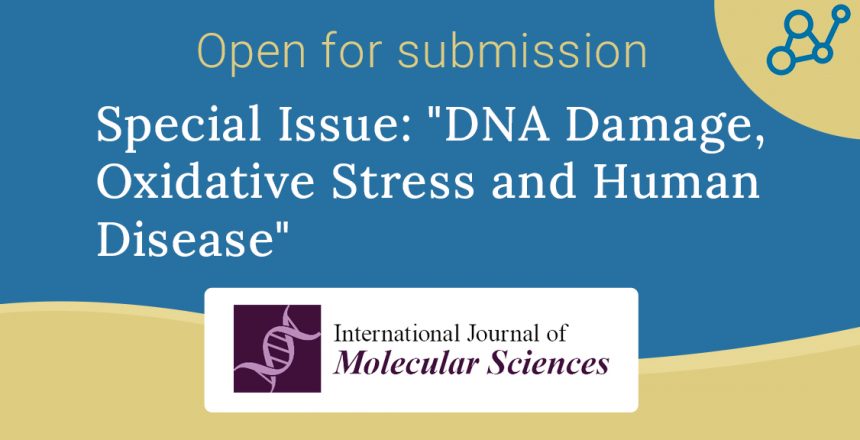A special issue of International Journal of Molecular Sciences (ISSN 1422-0067). This special issue belongs to the section “Molecular Pathology, Diagnostics, and Therapeutics“.
Deadline for manuscript submissions: 31 August 2022.
Special Issue Information
Dear Colleagues,
Organisms have evolved a set of mechanisms to cope with a variety of exogenous and endogenous challenges in order to maintain homeostasis. Amongst these mechanisms are DNA damage and oxidative stress responses. DNA damage responses (DDRs) rely on an intricate network that aims at detecting and repairing any damage caused to the DNA. The damage can be caused, for example, by UV radiation, chemotherapeutic drugs, chemicals or endogenous sources including replication fork stalling and reactive oxygen species (ROS). ROS are molecules naturally produced by cells, namely, by NADPH oxidases or by mitochondria during ATP generation via the electron transport chain (ETC). When ROS accumulate in a cell, leading to oxidative stress, they have highly deleterious effects, promoting oxidation of different macromolecules. The deleterious effects of ROS accumulation are countered by different anti-oxidant defense mechanisms, which aim at restoring the homeostasis between ROS production and accumulation.
Several human diseases have been associated with excessive DNA damage and/or oxidative stress, or failure in the respective response mechanisms. These diseases include cancer, metabolic syndrome, neurodegenerative diseases, myopathies and several other pathologies including diseases characterized by genetic defects of DNA repair mechanisms, such as Fanconi anemia, ataxia telangiectasia or Nijmegen breakage syndrome.
For this Special Issue, we invite authors as well as the participants of The COST Action CA20121 to submit novel work or reviews establishing the importance of DNA damage and/or oxidative stress in the pathology of human diseases. This Special Issue aims at shedding new light onto the disease mechanisms that lead to increased DNA damage and oxidative stress, and conversely onto how DNA damage and oxidative stress lead to an increase in disease pathology. Moreover, it aims at highlighting the cross-talk between DNA damage and oxidative stress responses in the context of human diseases.
Dr. Ana Rita Carlos
Prof. Dr. Fernando Antunes
Dr. Isabel M. Pires
Guest Editors
You can find all the information about in the button below


